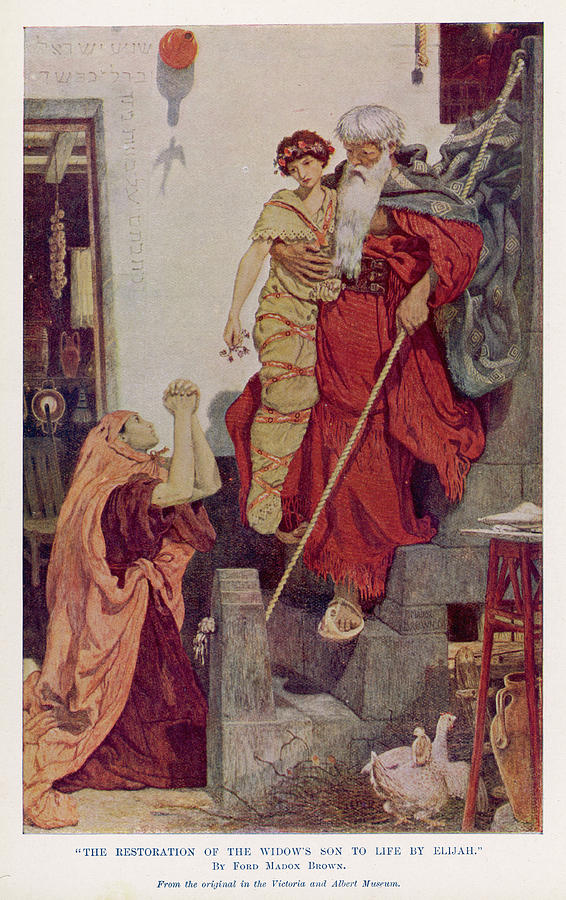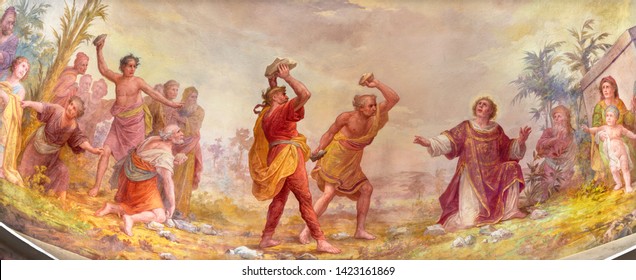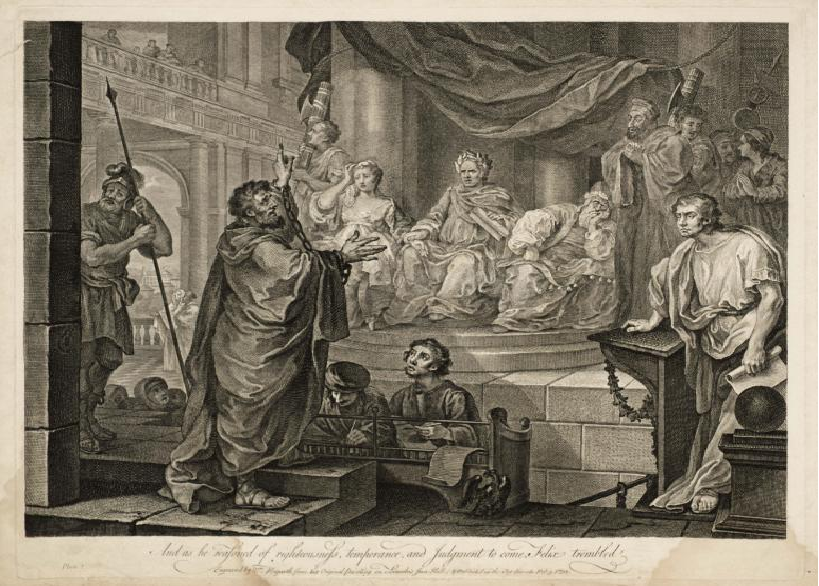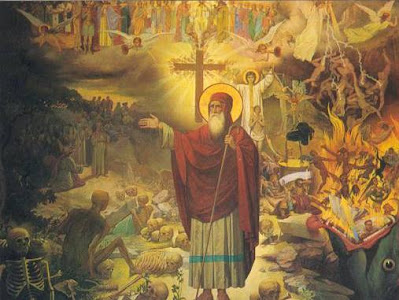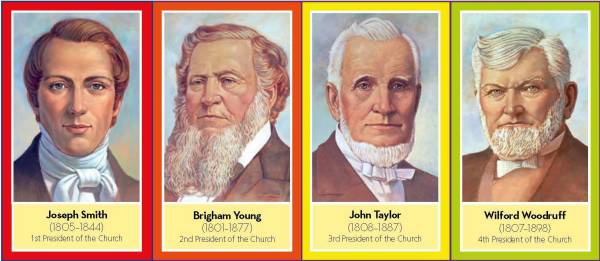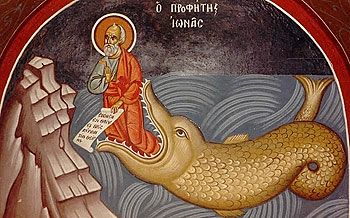"On this mountain the Lord of hosts will make for all people a feast of rich food, a feast of well-aged wine, of rich food full of marrow, of aged wine well refined. And He will swallow up on this mountain the covering that is cast over all peoples, the veil that is spread over all nations. he will swallow up death forever; and the Lord God will wipe away tears from all faces, and the reproach of His people He will take away from all the earth, for the Lord has spoken. It will be said on that day, 'Behold, this is our God; we have waited for Him, that He might save us. This is the Lord; we have waited for Him; let us be glad and rejoice in His salvation.' For the hand of the Lord will rest on this mountain..." (Isaiah 25:6-10).
"The mountain of the Lord" and its variants appear frequently in the prophets, especially in Isaiah. See, for example, chapter 2, and the fourth chapter of Micah. It is an image derived from the temple mount, the place where God met in fellowship with His people. That image, in turn, may have come from the mountain on which Adam was placed in the garden. Thus, it is an image of fellowship, between the elect and our Redeemer. Use of "the Lord," used in English Bibles when the Hebrew refers to Jehovah, shows that the relationship is not with the Trinity undifferentiated, but rather with the Second Person of the Trinity, the preincarnate Christ, acting in His mediatorial role.
In addition to those Old Testament parallels, we also see elements in the passage above that would appear in the New Testament, specifically in the writings of Paul.
Where the prophet describes the spiritual veil over the hearts of men, Paul uses the same image for the yet-unbelieving Jews in II Corinthians 3:12-18: "Since we have such a hope [of life in the Spirit, v. 6], we are very bold, not like Moses, who would put a veil over his face so that the Israelites might not gaze at the outcome of what was being brought to an end. But their minds were hardened. For to this day, when they read the old covenant, that same veil remains unlifted, because only through Christ is it taken away. Yes, to this day, whenever Moses is read, a veil lies over their hearts. But when one turns to the Lord, the veil is removed. Now the Lord is the Spirit, and where the Spirit of the Lord is, there is freedom. And we all, with unveiled face, beholding the glory of the Lord, are being transformed into the same image from degree of glory to another..."
Notice also that Paul tells us another relevant fact: It is in turning to Christ that the veil of unbelief is removed, verifying that it is in Christ that the events described by Isaiah will occur. Some will agree, but place the events after His second coming. Yet the passage precludes that possibility by describing it in feast terms. yet, there will be no hunger in the resurrection, and, therefore, no use for food.
Does Paul restrict our case to the Jews? In II Corinthians, that might be possible, but it is eliminated if we include another Paulian passage, Romans 11:11-15: "So I ask, did they [i. e., the Jews] stumble in order that they might fall [forever]? By no means! Rather, through their trespass salvation has come to the Gentiles, so as to make Israel jealous. Now, if their trespass means riches for the world, and if their failure means riches for the Gentiles, how much will their full inclusion mean? Now I am speaking to you Gentiles. Inasmuch then as I am an apostle to the Gentiles, I magnify my ministry in order, somehow, to make my fellow Jews jealous, and thus save some of them. For if their rejection means the reconciliation of the world, what will their acceptance mean but life from the dead?" And further, Romans 11:25-26: "Lest you be wise in your own sight, I do not want you to be unaware of this mystery, brothers: a partial hardening has come upon Israel, until the fullness of the Gentiles has come in. And in this way, all Israel will be saved..."
Thus, Paul predicts in narrative what Isaiah prophesied in the poetic language of Hebrew prophecy, that a time will come, in which the greater part of both Gentiles and of Jews will be converted to saving faith in Jesus Christ. The Puritans called this the postmillennial hope.


